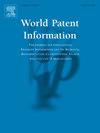Strategic portfolio management of university-owned patents for commercializing inventions
IF 2.2
Q2 INFORMATION SCIENCE & LIBRARY SCIENCE
引用次数: 0
Abstract
In the contemporary knowledge-driven economy, universities are pivotal in generating intellectual property through research. Efficiently managing and commercializing the resulting patents are critical for fostering innovation and economic growth. This article presents a comprehensive framework for the strategic portfolio management of university-owned patents, focusing on effective patent selection and periodic evaluation through a structured scoring system. Drawing inspiration from international experiences such as the Bayh-Dole Act, the framework incorporates scoring scales that evaluate novelty, inventive step, commercialization potential, and inventor team status. The process guides universities in selecting patents for their portfolio and periodically reevaluating their relevance. This systematic approach aims to optimize patent commercialization efforts, enhance innovation transfer, and align universities' patent portfolios with their strategic goals. However, the framework is not without limitations, including subjectivity in scoring and evolving market dynamics. Future research directions could address these limitations and further refine the framework to maximize the impact of university-owned patents in driving innovation and economic progress.
对大学拥有的专利进行战略性组合管理,以实现发明的商业化
在当代知识驱动型经济中,大学在通过研究产生知识产权方面举足轻重。有效管理和商业化由此产生的专利对于促进创新和经济增长至关重要。本文介绍了大学专利战略组合管理的综合框架,重点是通过结构化评分系统进行有效的专利选择和定期评估。该框架从 Bayh-Dole 法案等国际经验中汲取灵感,纳入了评估新颖性、创造性、商业化潜力和发明人团队状况的评分标准。该流程指导大学为其专利组合选择专利,并定期重新评估其相关性。这种系统化的方法旨在优化专利商业化工作,加强创新转让,并使大学的专利组合与其战略目标保持一致。不过,该框架也并非没有局限性,包括评分的主观性和不断变化的市场动态。未来的研究方向可以解决这些局限性,并进一步完善该框架,最大限度地发挥大学专利在推动创新和经济进步方面的作用。
本文章由计算机程序翻译,如有差异,请以英文原文为准。
求助全文
约1分钟内获得全文
求助全文
来源期刊

World Patent Information
INFORMATION SCIENCE & LIBRARY SCIENCE-
CiteScore
3.50
自引率
18.50%
发文量
40
期刊介绍:
The aim of World Patent Information is to provide a worldwide forum for the exchange of information between people working professionally in the field of Industrial Property information and documentation and to promote the widest possible use of the associated literature. Regular features include: papers concerned with all aspects of Industrial Property information and documentation; new regulations pertinent to Industrial Property information and documentation; short reports on relevant meetings and conferences; bibliographies, together with book and literature reviews.
 求助内容:
求助内容: 应助结果提醒方式:
应助结果提醒方式:


